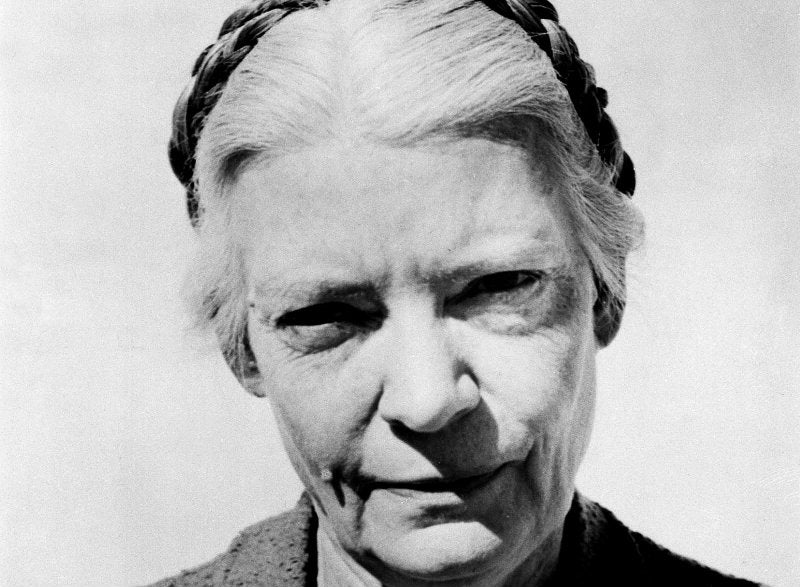Pope Gives Shout-Out to Dorothy Day, Founder of Catholic Worker Movement

In his address to Congress Thursday, the Pope reminded them of all the people and things they’re busily trying to forget about or have spent their careers legislating against (the poor, the oppressed, people in prison, the environment). He also gave several surprising and touching tributes to one of the heroes of the Catholic social justice movement, Dorothy Day.
“In these times when social concerns are so important, I cannot fail to mention the Servant of God Dorothy Day, who founded the Catholic Worker Movement,” Pope Francis told them. “Her social activism, her passion for justice and for the cause of the oppressed, were inspired by the Gospel, her faith and the example of the saints.”
Day founded the Catholic Worker movement with Peter Maurin; both were social justice advocates, although Day has been delightfully and more colorfully described as a “pacifist, anarchist, and holy person.” She’s said to have prayed and recited the rosary every morning, before going out to edit the Catholic Worker newspaper and advocate for spreading the means of production. (Although she was anti-abortion, she had one early in life, which she described as a terrible experience with a “dirty, furtive” illegal doctor.)
The Catholic Worker movement focused on both helping the poor and homeless and advocating against war, first by criticizing post Cold War hysteria and later organizing against the war in Vietnam. There are still soup kitchens and homeless shelters all over the country bearing Day’s name. The Catholic Church began considering whether to canonize her in 2000, although there’s been little progress there. She is currently referred to as a “Servant of God,” a sort of pre-saint position.
Pope Francis praised Day’s “tireless work, the fruit of her faith, which becomes dialogue.” Maybe he’ll jumpstart her sainthood too.Pope Gives Shout-Out to Dorothy Day, Founder of Catholic Worker Movement :

The two Americans just got name-checked by the Pope
In speaking to Congress on Thursday, Pope Francis demonstrated that he’d brushed up on his American history in advance of his historic visit to the U.S. In mentioning a few famous Americans whose lives could serve as inspirations as the world navigates current crises, he turned to two obvious choices—Abraham Lincoln and Martin Luther King—and two whose names might be unfamiliar to those less versed in the history of American religion: Dorothy Day and Thomas Merton.
So who were they?
Dorothy Day was the founder of the Catholic Worker Movement, who used her faith to work for social justice. In 1940, TIME noted that, “Among U. S. Christians who care for the poor, none are more blessed with selfless zeal than those Roman Catholics who labor in the Catholic Worker movement.”
When she died in 1980, TIME explained that her take on Catholic activism was anything but uncontroversial:
To admirers like Historian David J. O’Brien, writing inCommonweal, she was “the most significant, interesting and influential person in the history of American Catholicism.” If so, it is because her Catholic Worker movement blended zeal for reforming the whole social system with practical concern for helping the individual poor. She was arrested a dozen times, the first as a suffragette in 1917, the last during a workers’ demonstration in California in 1973, and took part in scores of labor and antimilitary protests.
Though she was raised Episcopalian and became an agnostic in her youth, as she “took a Marxist lover, joined the young labor movement and wrote for far-left newspapers like the Masses,” a relationship and the birth of her daughter led to the church. In the 1930s, in the depths of the Depression, she launched the periodical The Catholic Worker and a philosophy to go along with it: pro-union, anti-poverty, pacifist, anti-government. She even went so far as to refer to it as anarchism, believing that individuals could be empowered to Why Pope Francis Cited Dorothy Day and Thomas Merton
